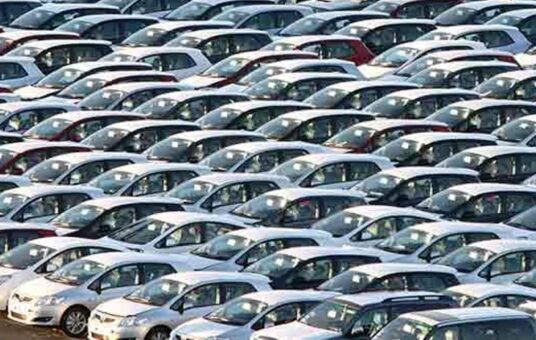Pakistan has increased the regulatory duty on imported motor vehicles from 90% to 100%. The decision, communicated through the issuance of SRO 1571(I)/2022 by the Federal Board of Revenue (FBR), comes as part of the government’s efforts to stabilize the balance of payments and manage the outflow of foreign exchange.
This regulatory duty hike is implemented through an amendment to SRO 966(I)/2022, which was originally issued on June 30, 2022. The increased duty is applicable to various categories of imported vehicles, including mini vans in completely built units (CBU), 4X4 vehicles CBU, vehicles with a cylinder capacity exceeding 1000CC but not exceeding 1300CC, and sports utility vehicles.
The decision to raise the regulatory duty on motor vehicles is a response to the escalating concern over the depletion of foreign exchange reserves. The move is aimed at curbing unnecessary imports and, in particular, limiting the influx of luxury vehicles into the country. Such measures are often seen as essential to maintaining economic stability and ensuring the sustainability of the country’s balance of payments.
The government had initially taken steps to control the import of completely built unit (CBU) motor vehicles by imposing a ban on May 19, 2022. The primary objectives behind the ban were to support the balance of payment and prevent further depreciation of the rupee. However, on August 20, 2022, the government reversed its decision to ban CBU motor vehicle imports, reportedly under pressure from the International Monetary Fund (IMF).
Finance Minister Miftah Ismail had previously hinted at the possibility of imposing regulatory duties as a means to discourage the import of luxury and non-essential items. This move aligns with the broader economic strategy to manage the country’s external account and strengthen its financial position.
The regulatory duty increase on motor vehicle imports is expected to contribute to the government’s ongoing efforts to stabilize the economy, conserve foreign exchange reserves, and promote a more sustainable trade balance. However, such measures may also impact consumers, especially those looking to purchase imported vehicles, as the higher duty could translate into increased costs for these automobiles. The government’s decision reflects its commitment to addressing economic challenges and maintaining fiscal discipline in the face of global economic uncertainties.
